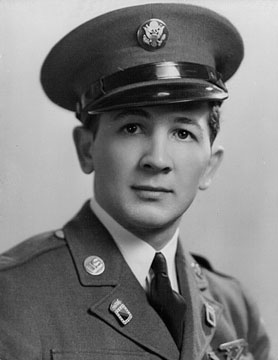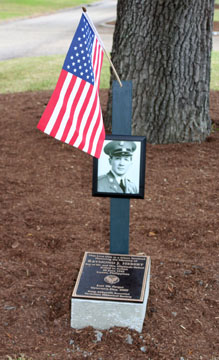
 |
 |
Raymond J. Hebert had curly hair that he did not like, so he used a pomade to
straighten it. One of his classmates said it was cooking oil, and from
that time on he was known as Raymond "Cooking Oil" Hebert.
According to C. Paul Bergeron,
one of his classmates, Raymond was a cheerful, friendly, courteous kid, and very
popular. But put him in a boxing ring, and he was a terror. Many high
schools at that time had boxing teams. Raymond won the district
championship in his weight class three years in a row, and in his senior year
won the state championship. As a result, he was awarded scholarships to
S.L.I. and to L.S.U.
He attended L.S.U. for a while but did not like college life, so he volunteered
for the US Army Air Corps, the forerunner of today's Air Force, and was
stationed in the Philippines when Pearl Harbor was attacked.
Raymond, as well as all of the other American troops who were stranded in the
Philippines when General McArthur withdrew, was declared missing in action as of
May 7, 1942, the date of the surrender of Corregidor. The American troops
had fought valiantly against overwhelming odds until it became necessary for
those who were still alive to surrender. That led to the infamous "Bataan
Death March."
Raymond was not declared killed in action until the war was over in 1945.
The story that emerged about Raymond as told by released American prisoners of
war was that he had avoided being captured by the Japanese and had joined the
Filipino resistance. He was killed in a firefight on June 30, 1943.
Pvt. Raymond Hebert was the son of Oliphiade Hebert and Sylvia Buras Hebert. He had
two sisters, Isabel and Ouida, and one brother, Melvin. Isabel is still
living in Abbeville, and we are grateful to her for the picture above.
Next: Herman C. Landry